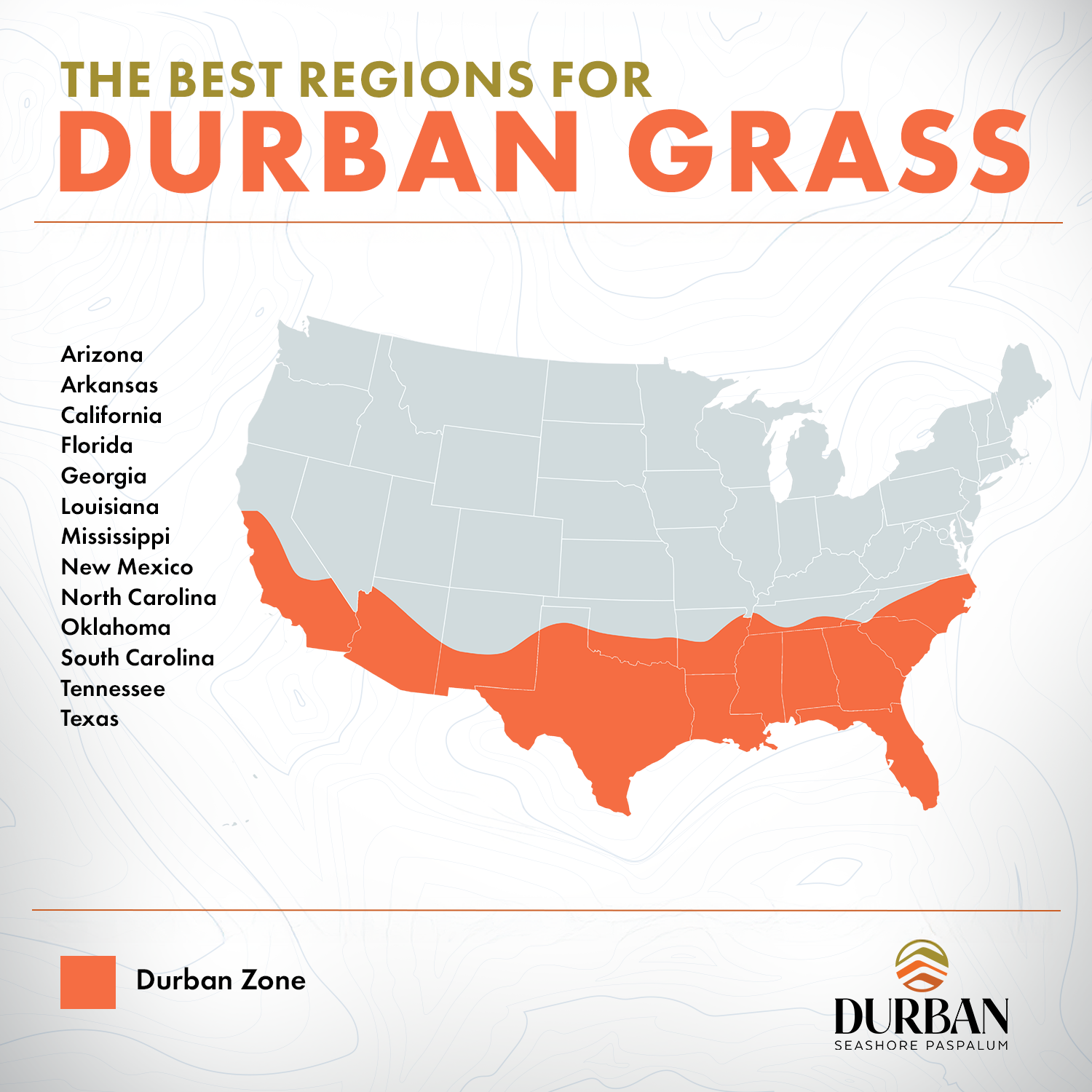A Game-Changer in Coastal Grass
Contact Customer Service
Ideal Growing Zones
Durban Seashore Paspalum thrives in warm-season regions where heat, humidity, and even salt exposure can challenge other grasses. Its resilience makes it an excellent choice for coastal areas, southern climates, and inland zones across the Southeast and beyond. Whether used on residential lawns, golf courses, or athletic fields, Durban delivers consistent performance and lasting beauty in the regions where it grows best.

HISTORY OF DURBAN
KEY TRAITS & BENEFITS
Drought Tolerant
Elite Turf Quality
Unmatched Color
High Recovery From Scalping
Cold Tolerant
Maintenance & Care
Durban Seashore Paspalum is designed with ease of care in mind. Its natural resilience reduces the need for intensive upkeep, allowing it to maintain a healthy, vibrant appearance with less water, fewer inputs, and minimal effort.
Mowing
Maintain at 0.5 to 1.5 inches depending on use—lower for golf and sports, higher for lawns.
Sunlight
Requires 6–8 hours of full sun daily for optimal performance.
Traffic Tolerance
Durban withstands heavy wear from sports, pets, and foot traffic, recovering quickly when managed with proper mowing and fertilization.
Watering
Needs about 1–1.25 inches of water per week during the growing season. Periodically use fresh water irrigation to flush salts from the soil.
Fertilization
Apply 3–4 lbs. of nitrogen per 1,000 sq. ft. annually, using a balanced fertilizer to maintain color and vigor.
Weed Control
Maintain a dense canopy to naturally suppress weeds. For best results, pair with pre-emergent herbicides during seasonal transitions.
Featured Articles / Documents

Introducing Durban Seashore Paspalum
Durban Seashore Paspalum is a warm-season grass known for its high tolerance to saline conditions. Native to coastal regions, it naturally withstands salt spray, brackish water, and poor-quality irrigation sources that would damage most other grasses.
Read More
How Much Sod Do I Need: Get the Right Amount for Your Lawn
Laying fresh sod is the quickest way to achieve dense, green coverage on your lawn, but ordering the correct amount is key to a successful installation.
Read More
The Future of Turf: How New Grass Varieties Are Shaping Sustainable Lawn Care
Lush, green lawns are a hallmark of homes and parks, but maintaining them has traditionally come at a significant cost—high water usage, chemical treatments, and frequent upkeep.
Read MoreFrequently Asked Questions
Is Durban suitable for residential lawns?
How does Durban compare to other warm-season grasses in drought tolerance?
Can Durban Seashore Paspalum handle salty irrigation water?
What maintenance practices help prevent buildup?






